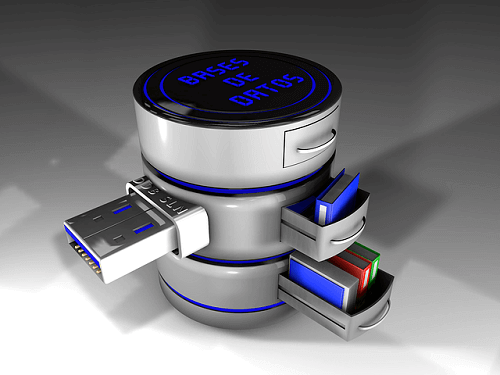Computer Virus: Effects, How They Spread And How To Remove Them
This article will explain computer viruses, how they spread, their effects on your computer, and how to protect yourself.
If your computer has been acting strangely, becoming slower, or you notice that files have been deleted without your knowledge, it may be a result of a computer virus causing havoc on your computer.
What Is A Computer Virus?
A computer virus is software that clinches itself onto legitimate applications and software on a computer or device to enable it to reproduce and spread itself on the computer.
Programmers make viruses just like real legitimate applications created by programmers.
They are mostly deployed by their creators to cause damage to computers or to take control of it.
The name ‘virus’ was derived as a result of the way through which it infects its targets.
A computer virus has a code snippet that allows it to insert itself into other applications and software.
When you run the application that has the virus snippet, it executes the code snippet and installs the virus on the new computer.
A virus is a type of malware, with the other type being the Trojan, which looks harmless until it starts executing.
Worms can spread and reproduce themselves very fast and independently without using any application as a transfer mode.
Viruses, however, need to infect applications and programs before they can do their work.
The First Virus Created

The first-ever virus created in history was the Elk Cloner, created by a 15-year-old boy in 1982.
What Viruses Do
Once the infected file or application gets onto the computer, the virus code immediately loads itself into the computer’s CPU before any legitimate files or applications can load themselves.
The virus then begins to infect other applications on the computer. It inserts its virus code in almost every place it can.
A resident virus typically does this, while a non-resident virus can infect files and programs even if they are not operating.
Boot sector viruses use a technique whereby they insert their code into the boot system of the computer.
This step causes the viruses to execute even before the operating system has been loaded.
When the execution of the virus has been done, it then starts to execute its payload on the computer.
Some of the things the virus will do depend on what it was built to do. These include scanning your computer for confidential information like your banking information, stealing your passwords, and turning your computer into an assault.
Viruses can even encrypt your computer data and hold it hostage, demanding payment in the form of Bitcoin before your data would be released back to you.
What Are The Most Common Viruses On Computers?
Web Scripting Virus
These are the types of viruses that overite code on a website and then place links inside, installing malicious software on your device. After that, the attacker can then do whatever he wants.
Browser Hijacker
As the name suggests, this virus makes settings on your browser, and anytime you try to visit any website, it then redirects you to other malicious websites.
Resident Virus
The virus first stores itself on your computer from there. It then obstructs the operating system and targets your computer files.
Polymorphic Virus
This virus is considered to be one of the most dangerous viruses because when it gets to your computer, the anti-virus can’t even notice it since it continuously changes its codes.
Macro Virus
These are the types of viruses that are hidden inside Microsoft Excel or Word. The virus stored as a document can spread itself from the document when it gets on your computer.
How They Spread

Viruses used to spread from computer to computer through mediums like floppy disks. Today, however, instead of applying to their host through the internet itself.
They still spread through data-sharing mediums such as pen drives and CDs. Some ‘gangsta’ viruses can hijack an email account and then mail out copies of its code.
They can also be accidentally downloaded (unaware by the user) from an infected app store or repository.
However, in an email, you can only get the virus if you open and download the virus’s attachment.
Effects Of Computer Virus

- Data Loss and Corruption: One of the most common and damaging effects of computer viruses is the loss or corruption of data. Viruses can infect files, documents, and even the entire operating system, leading to the loss of critical information.
- System Instability: Computer viruses can disrupt the normal functioning of an operating system. This can result in frequent crashes, freezes, and overall instability, making it challenging for users to perform tasks effectively.
- Performance Degradation: Viruses often consume system resources, such as memory and processing power, causing a significant slowdown in overall computer performance. Applications may take longer to load, and the system may become sluggish.
- Unauthorized access and control represent serious threats posed by certain viruses. These malicious programs are crafted to establish backdoors within the infected system, paving the way for unauthorized entry. Consequently, this can result in security breaches, enabling external entities to access data without permission. In more severe cases, these viruses may grant control of the compromised computer to external entities, jeopardizing the user’s privacy and the integrity of the system. Vigilance and robust cybersecurity measures are essential to mitigate the risks associated with such unauthorized access and control.
- Identity Theft: Certain types of viruses, such as keyloggers and spyware, are specifically crafted to capture sensitive information like usernames, passwords, and personal details. This information can be used for identity theft or other malicious activities.
- Network Disruption: Viruses can spread rapidly over networks, infecting multiple computers connected to the same network. This not only affects individual machines but can also lead to network disruptions, affecting the entire organization or community.
- Financial Loss: The impact of computer viruses can extend to financial losses for individuals and businesses. The cost of repairing infected systems, recovering lost data, and implementing security measures can be substantial.
- Compromised Security: Viruses often exploit vulnerabilities in the system’s security, compromising the overall safety of the computer. This can result in further malware infections, making it challenging to maintain a secure computing environment.
- Disruption of Productivity: Infected computers can disrupt normal workflows and productivity. Users may experience downtime while dealing with virus-related issues, and IT departments may need to allocate significant resources to address and mitigate the effects.
- Loss of Confidential Information: Beyond financial data, viruses can lead to the loss of sensitive and confidential information. This may include intellectual property, trade secrets, or proprietary business information, jeopardizing the affected entity’s competitive edge.
- Damage to Reputation: Individuals and businesses affected by computer viruses may experience damage to their reputations. If confidential information or customer data is compromised, trust in the organization’s ability to secure information may be eroded.
- Difficulty in Removal: Some viruses are designed to resist traditional removal methods. This persistence can make it challenging for users to eradicate the virus, leading to prolonged exposure to its detrimental effects.
Signs To Know Your Computer Might Be Infected With Virus
- The computer becomes slow.
- It crashes frequently
- When turned on, some programs you do not know start running.
- Emails are being sent without your permission.
- Making changes to things on your computer
- Files disappearing
- Virus removal
Once you notice a virus on your computer, the next thing to do automatically will be to remove the virus.
There are several ways through which you can remove the virus from your computer. Some viruses are more stubborn than others.
How To Remove A Virus From Your Computer
One of the most common ways to remove viruses from your computer is to install antivirus software on it.
The ironic and funny thing here is that. Some viruses are created by their owners just so their creators can sell you antivirus software to make money.
But it seems we don’t have much choice regarding that.
It will detect the virus on the computer and then clean it. However, some viruses are powerful because they can hide from the antivirus or even prevent the antivirus from working altogether.
In this case, you would need antivirus software that is up to date to clean the virus. This move is one reason why it is advisable to update your antivirus whenever it prompts you to do so.
When this happens, it would mean that the virus has spread itself over almost every part of the computer, thereby bringing down the computer’s defenses. Performing total clean is the only way it would be taken off the computer.
Here is all you need to know about computer virus, their effects, how they spread, and how to fight them, you can also check out bank trojan.







